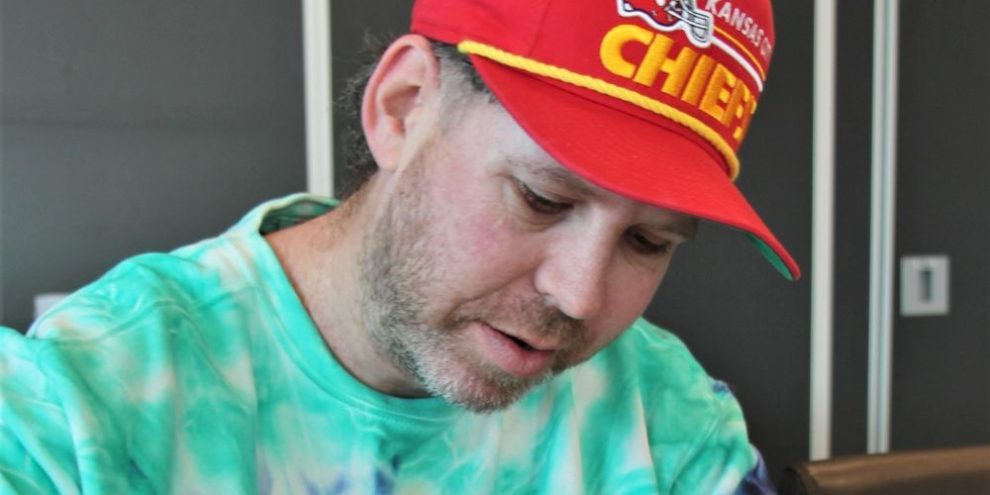
Aside from the hushed voices of participants, the only sound in a recent HERO Art Group class was the steady scratch of pencils and markers bringing mandalas to life. For the 20 or so clients of Waypoint’s HERO Centre who gather weekly at the Community Health Hub, these sessions are more than just an opportunity to create—they are a space to express, connect, and heal.
For many, art serves as a form of therapy, offering an outlet for emotions that can be difficult to articulate. Virginia Swanton, a regular attendee, appreciates the social aspect just as much as the creative one. “I like coming out and talking, meeting other people,” she said. “And the art is a way to express my feelings. It brings me calmness and allows me to re-centre myself.”
Barrie's News Delivered To Your Inbox
By submitting this form, you are consenting to receive marketing emails from: Central Ontario Broadcasting, 431 Huronia Rd, Barrie, Ontario, CA, https://www.cobroadcasting.com. You can revoke your consent to receive emails at any time by using the SafeUnsubscribe® link, found at the bottom of every email. Emails are serviced by Constant Contact
The HERO Art Group is designed to encourage creative expression in a supportive setting. Recreation Therapist Tamara Burke, who leads the group, may not have a formal art background, but after nearly a decade of incorporating art into her work, she has seen firsthand the impact it has on clients.
“The idea was to give people who were struggling with their mental health somewhere to be creative in a social environment, but not necessarily be the centre of attention,” Burke explained. “Through art, you can become more confident, social, and aware of yourself—and there’s real talent in this group.”
That talent is evident in the work of Doug McCormack, who carefully constructs colorful mandalas each session. Beyond the art itself, he finds purpose in assisting Burke with setup and takedown. “It gets me out and gives me a little distraction,” he shared.
Debbie Mullis echoed that sentiment. “I enjoy art. I’m not very good at it, but I like it,” she said with a laugh. “I’ve gone through some things that were hard to deal with, and the people here have been wonderful.”
For Terry Boyer, who lives with ADHD, depression, and anxiety, the art group has been transformative. As he worked on an intricate, symmetrical design, he spoke about how it has helped him stay engaged and open to new experiences. “The big thing is expanding my own artistic talent,” he said. “I’ve been shown some ideas that I never would have thought of. The social aspect—getting out and meeting new people—is also important. Meeting all these people has really contributed to the experience. They’re helping me with my own wellness.”
The HERO Centre provides a range of rehabilitation services, including employment, recreation, and education programs. The goal is to support clients in their mental health recovery by building on their strengths and interests. Whether it’s through finding work, developing a fulfilling hobby, or connecting with others, the focus remains on personal growth at an individual pace.
For the participants in the HERO Art Group, art is more than just a pastime—it’s a source of confidence, connection, and healing. As they continue to create, they also continue to build resilience, one stroke at a time.





